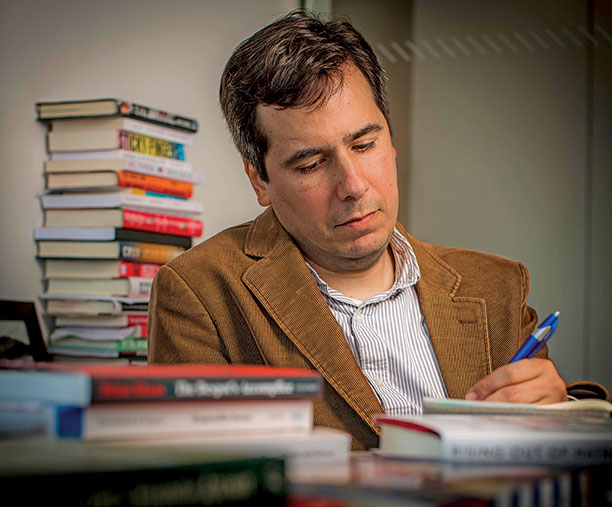Deliveries I think I may be the only person at the Post who goes to the mailroom every day. I sort through anything from 30 to 50 books that have come in.
On the shelf People don’t always read book reviews in order to decide what books to read. They read book reviews so that they don’t have to read the books. I see my job as, in part, letting people know not just what new books are coming out but even sometimes what old books are relevant again.
Deep reading I basically go through each book that I’m reviewing three times. First, I just read it straight through, with a pen, making a lot of notes in the margins. Then I pick it up again with a highlighter. I focus on the stuff that I seized on during the first read — I look at the notes that I made, the passages that I felt were most significant. Then I open up a file and go through the book again, looking just at the stuff that I highlighted. When I’m done, I have maybe 3,000 words of notes and quotes and ideas.
What I like about it is that an author of a book, or another reader, can take issue with my conclusions or thoughts about a book. But they can’t really say that I didn’t engage with it deeply and take it seriously.
Trumped When I started the job in January 2015, I figured it would be a nice mix of memoir and history and economics and some politics. But like so much in the Trump presidency and our current moment, [politics] became a really dominant focus. Sometimes, I feel like I’m a political writer masquerading as a book critic. It’s not just books about Trump, but books about populism, for instance, about the white working class, about identity, about misogyny. All these things seem to end up relating to where we are politically.












No responses yet